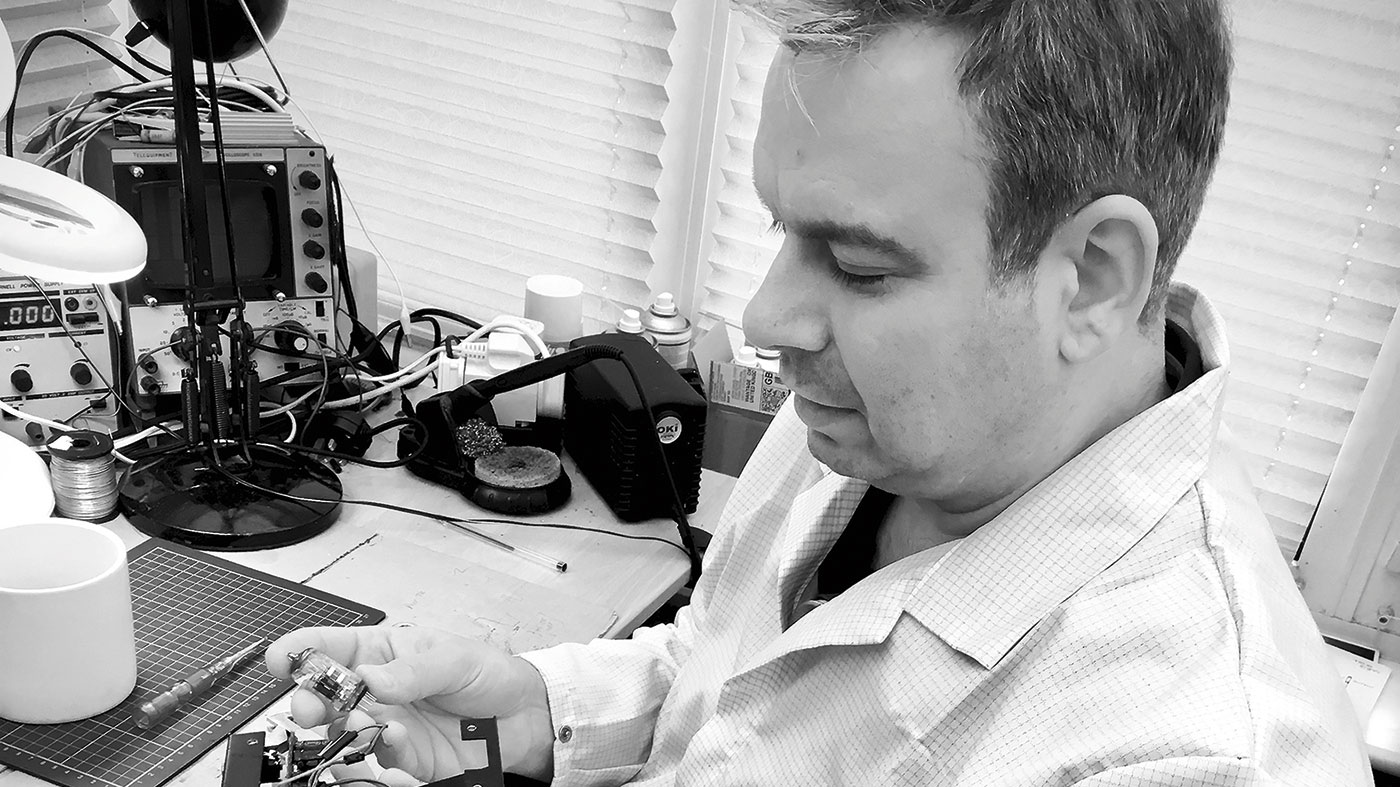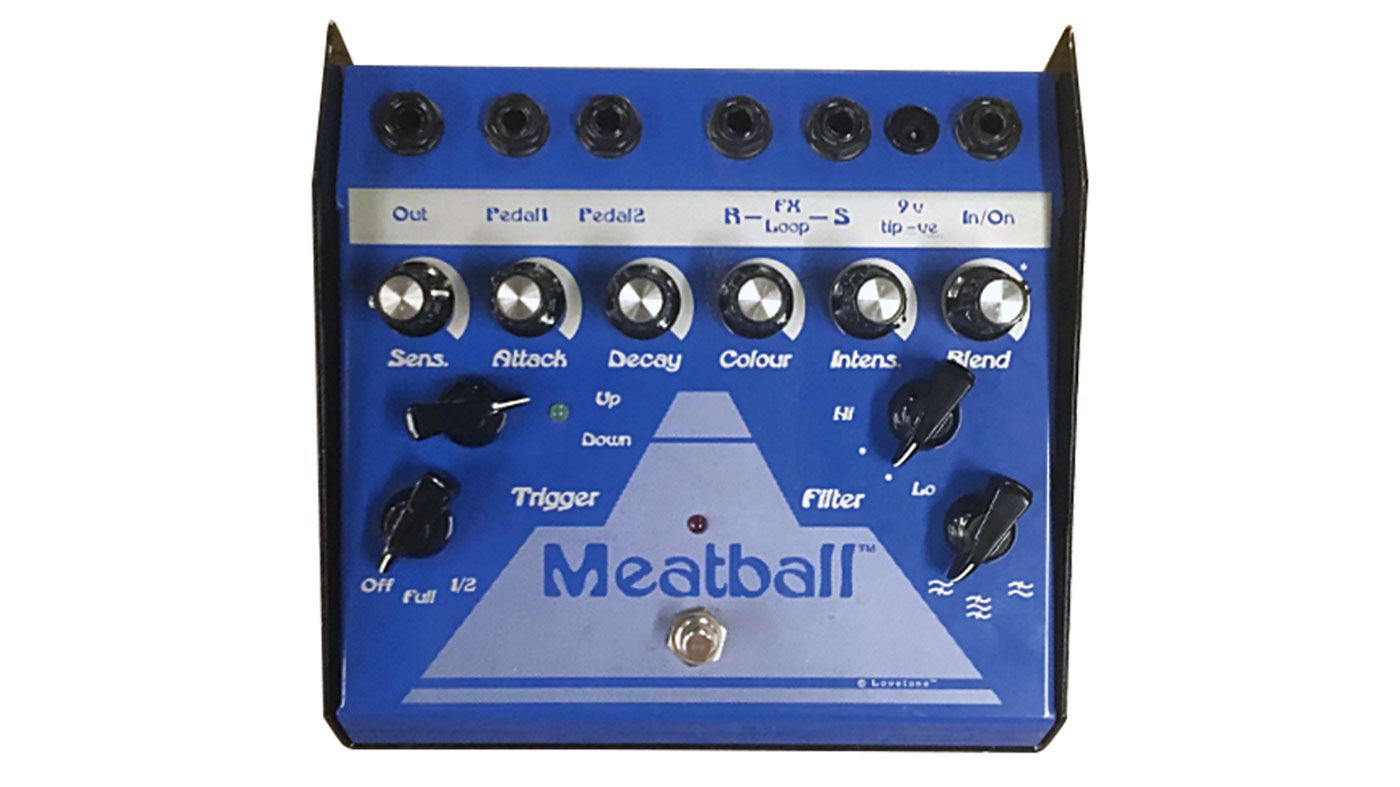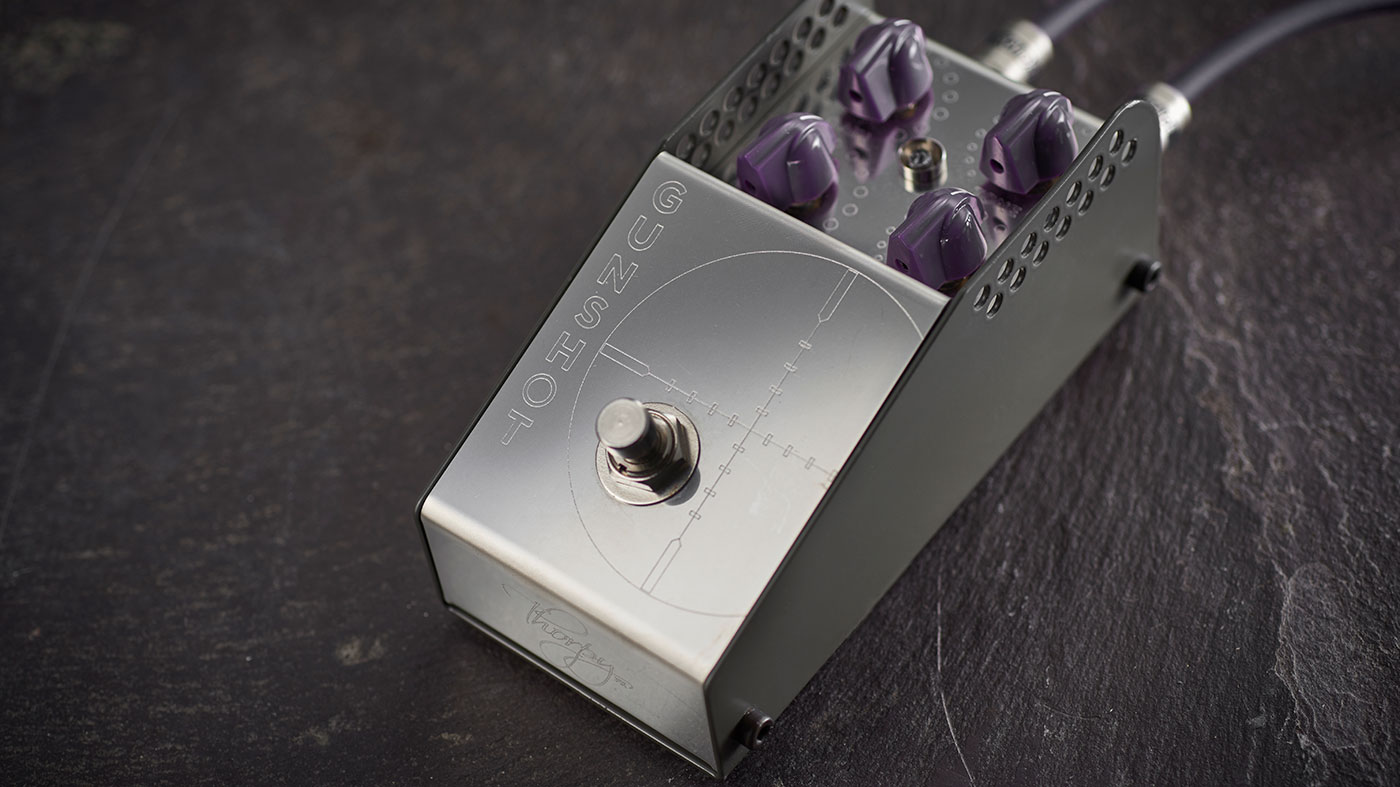
Want all the hottest music and gear news, reviews, deals, features and more, direct to your inbox? Sign up here.
You are now subscribed
Your newsletter sign-up was successful
Dinosaural’s Dan Coggins reflects on the legend of Lovetone and his latest creative venture with ThorpyFX…
1. What was the first pedal you built and how did the design come about?
“The Lovetone Meatball, in 1994. Lovetone was a collaborative effort [with musician Vlad Naslas]. I was aware the envelope filter circuit used something called a state variable filter from looking at the Mu-Tron III and Craig Anderton’s book [Electronic Projects for Musicians], and I went about designing an original circuit. I was tweaking the design during my night shifts at the BBC, and in the day time I’d show it to Vlad; he was pushing for lots of controls and it ended up being used in studios a lot, as well as on pedalboards.”
2. What do you think makes your pedals unique?
Sound-wise we wanted the pedals to be musical, warm and full. It was about understanding the circuitry and how to wreak the most havoc with control
“I don’t build pedals any more, but I still love electronics and music, so I work in the capacity of a consultant and I’m designing stuff with ThorpyFX at the moment. The Lovetone graphics came about from Vlad and I thinking about Henri Matisse paintings and the way he would combine colours. The whole thing was ‘art meets science’ - that’s what we (rather loftily) thought we were doing.
“Sound-wise we wanted the pedals to be musical, warm and full. It was about understanding the circuitry and how to wreak the most havoc with control. I used to own an EMS VCS3 synthesizer, which was instrumental in teaching me about voltage controlled synthesis and how to do weird shit with analogue electronics; that informed some of the Lovetone designs like the Ring Stinger and the ? Flanger.”
3. What’s your best-selling pedal and why do you think that is?
Want all the hottest music and gear news, reviews, deals, features and more, direct to your inbox? Sign up here.
“The Meatball was the best-selling one. It was very tweakable and console-like. It looked retro, but it was also very radical. You can do some really weird stuff with it. It’s a very musical sounding filter and it can be overdriven very gracefully. It’s got an effects loop and all the controls are very interactive and versatile. It’s easy to dial in sounds via experimentation and it can be used on all manner of instruments.
“The name came about as a joke: I said ‘It’s got meat, it’s got balls - let’s call it the Meatball!’ and the working name stuck. Most of the Lovetone pedals have odd names. The Brown Source was my attempt to emulate the guitar tone in Jumpin’ Jack Flash.”
4. Which notable musicians have used Lovetone pedals?
“Beastie Boys, Metallica, Radiohead, Pulp, Pavement, Jimmy Page and John Paul Jones, Bryan Ferry… The producer Gil Norton (who did Pixies, Foo Fighters and Band of Skulls) bought a pedalboard, which I recently serviced for him. [Producers] Alan Moulder and Flood also bought the whole set. There’s quite a list!”

5. What’s new on the horizon?
“The Dinosaural compressor is going to be appearing in a new guise, called the Fat General, as part of the ThorpyFX range, and we also have an EQ coming out called the Team Medic.”
6. Tell us a secret about effects you’ve discovered...
Rather than going for overall volume boosts for solos, try a midrange boost of about 4-6dB instead
“Be mindful of the order they’re in. Also, I made a discovery the other day when I used some high-output pickups with an old MXR Phase 90. It was cracking up and sounding awful; some of the older pedals don’t have a very good headroom margin and you have to be aware of that.”
7. What’s your best tone tip?
“Rather than going for overall volume boosts for solos, try a midrange boost of about 4-6dB instead. Also, use a buffer at the beginning of your signal chain after the guitar.”
8. Name some common mistakes that guitarists make with their effects and what alternative advice would you give them?
“Less is more. Sometimes people use gear as something to hide behind, but there’s no substitute for knowing your instrument. I was watching a guy the other night doing a tap dance on a pedalboard the size of a coffee table and I was thinking ‘this just isn’t on!’, you know?”

9. What new pedal triggers your GAS most now?
“I don’t buy a lot of pedals, but the Pigtronix stuff is really innovative. What they do is pretty special. Also, I really love ThorpyFX pedals and use them myself. I use the Gunshot pedal a lot.”
10. What’s your favourite vintage pedal and why?
“I’ve got lots of favourites, but the one that always seduces me is the Electro Harmonix Electric Mistress flanger. That classic EH stuff from the second half of the 70s was designed by a guy called David Cockerill. He designed the VCS3 synthesizer and Akai samplers. He’s the Leo Fender of guitar effects!”
Guitarist is the longest established UK guitar magazine, offering gear reviews, artist interviews, techniques lessons and loads more, in print, on tablet and on smartphones
Digital: http://bit.ly/GuitaristiOS
If you love guitars, you'll love Guitarist. Find us in print, on Newsstand for iPad, iPhone and other digital readers


